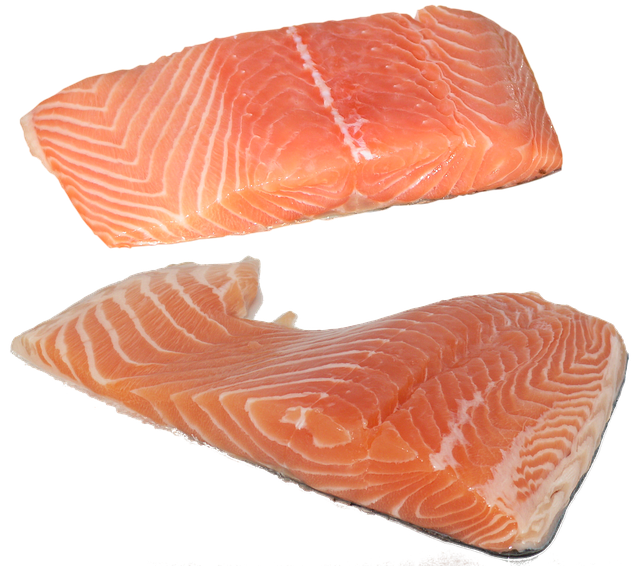
People often do not think much about the kinds of seafood they eat, especially fish. Salmon is a common choice for many, which can be caught in the wild or be farm-reared. Salmon is an oily fish that is a source of essential fats, meaning salmon is healthy. Eating salmon can promote skin, brain, and heart health.
According to medical research, a regulated intake of roughly 0.45 to 4.5 grams of omega-3 fatty acids, which you can find in salmon, can lower blood pressure, improve heart function, and reduce inflammation. Salmon is a healthy source of a type of Omega-3 fatty acid called DHA.
While the farmed salmon reared on an artificial pellet-based diet does have nutritional value, the wild salmon is a better choice since they live on a natural diet consisting of flies, smaller fish, and crustaceans they hunt in the wild. Therefore, the salmon you get from a local hatchery will not provide the same health benefits you would get from the wild-caught salmon. With the advance of technology where everything is dropped off to your door, you can now get a Smoked Salmon Deliver instead of having to travel to your local supermarket.
The top health benefits of adding salmon to your diet include:
Enhances Cardiovascular Health
Salmon is an abundant supply of potassium and EPA, DHA omega-3 fatty acids, which contribute significantly to heart health when combined with omega-6 fatty acids. People who consume salmon are less like to experience high cholesterol levels, artery inflammation and balanced blood pressure.
The body needs potassium to prevent excess fluid retention and regulate blood pressure. Experts have found that including salmon in your diets can lower the risk of heart-related complications like arrhythmia, high triglycerides, heart attacks, high blood pressure, and stroke.
Repairs Damaged Tissues
Salmon is an excellent source of protein and essential nutrients. The body needs proteins to generate and rejuvenate blood, muscles, bones, skin, and cartilage. Therefore, proteins help the body to maintain muscle mass and function during weight loss, protect bone health, and build and repair tissue. With such functions operating at a prime level, you will have better bone density, strength, and a healthy metabolic rate.
Vitamin B Complex Source
Salmon is a source of the vitamin B complex (the whole vitamin B group), essential in maintaining a healthy balance of bodily functions. The vitamin group is crucial promotes digestion, helping turn the food you consume into energy. It also is vital in reducing inflammation and DNA creation and repair.
While Salmon has the complete vitamin B group, it is richest in vitamin B3 and B6, with the latter helping with brain health and the former lowering cholesterol levels. The vitamin B12 we get from salmon is essential for the nervous system and brain function, hormonal balance, and supporting several metabolic functions.
Promoting Proper Thyroid Function
The selenium in salmon will help the body maintain thyroid function. Selenium is an essential trace mineral that helps protect the thyroid gland from oxidative damage attributed to the synthesis of the thyroid hormone, whose production depends on the generation of hydrogen peroxide in the thyroid gland’s cells.
Promotes Brain Health
The nutritional benefits of consuming salmon are defined best when the DHA, Vitamin B, A, D, and selenium work collaboratively to support and improve brain function. Research shows that the omega-3 fatty acid supplements made from fish oil treat psychological disorders like Parkinson’s and Alzheimer’s disease. Pregnant women are advised to include salmon in their diet and take supplements to promote fetal brain development and health.